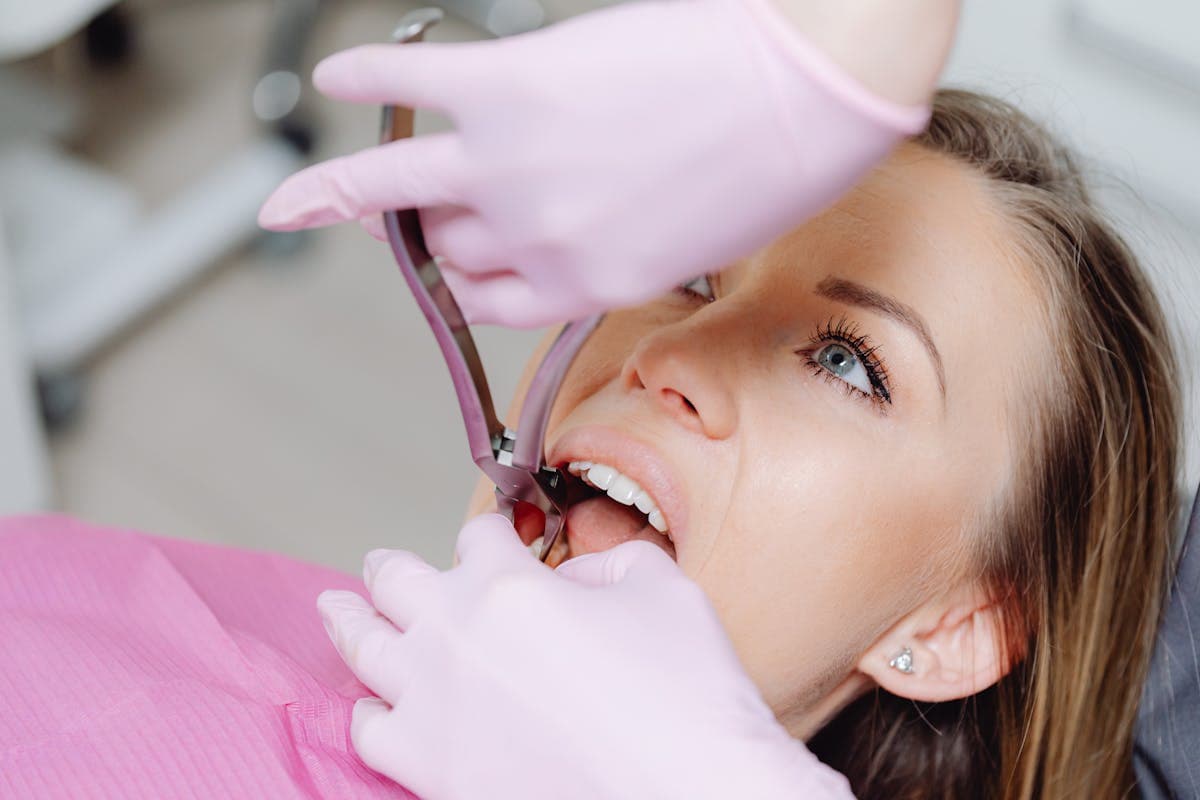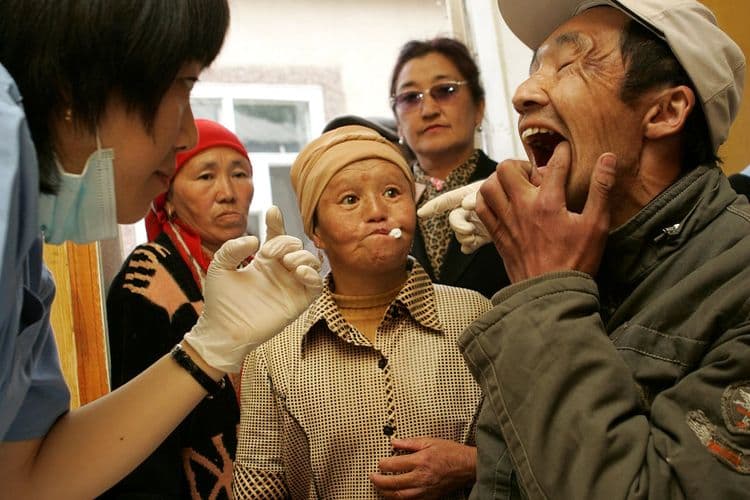In the vast domain of dentistry, the topic of wisdom teeth extraction often surfaces as a contentious issue. Ostensibly, these late-blooming molars may seem harmless; however, their emergence can trigger a series of potential complications ranging from misaligned teeth to severe infections. Such risks often prompt dentists to recommend pre-emptive extraction. Yet, is this surgical intervention always necessary, or could some wisdom teeth be left undisturbed? To explore this dental conundrum further, we must first understand the nature and function of these so-called ‘teeth of wisdom’.
Understanding Your Wisdom Teeth
Wisdom teeth, the last set of molars that generally emerge between the ages of 17 and 25, are often a source of significant dental discomfort and complications. Their late development, often resulting in insufficient space within the dental arch, can lead to impaction, infection, and damage to adjacent teeth. Regular dental hygiene may become challenging due to the location of wisdom teeth, thus increasing the risk of decay and periodontal disease. In certain cases, cysts or tumors can develop around impacted wisdom teeth, necessitating immediate medical attention. As a result, understanding the potential issues associated with wisdom teeth, maintaining ideal dental hygiene, and regular dental check-ups are essential in preventing potential complications.
The Evolutionary Purpose of Wisdom Teeth
Despite their potential for causing dental issues, wisdom teeth are not without purpose from an evolutionary standpoint. They are a fascinating example of evolutionary adaptation and dental evolution. Our early human ancestors required a robust set of molars for their survival. Their diet consisted mainly of raw meat, roots, leaves, and nuts, which required substantial mastication power. Consequently, wisdom teeth, or third molars, were a necessary component of their dental structure. Over time, as humans began to cook and process food, the need for these powerful grinders diminished. However, the genetic code that instructs the growth of wisdom teeth still persists, resulting in their presence in today’s human population.
Potential Problems With Wisdom Teeth
Although they were once necessary for survival, wisdom teeth can now pose a variety of problems for modern humans. One of the most prevalent issues is impacted teeth, where the wisdom teeth do not have enough room to emerge or grow properly. This can cause pain, infection, and damage to adjacent teeth. Additionally, wisdom teeth can lead to dental crowding, a condition where teeth are pushed together, causing misalignment. This not only affects your appearance, but also makes oral hygiene more challenging, increasing the risk of tooth decay and gum disease. Moreover, cysts or tumors can form around impacted wisdom teeth, leading to potential jaw damage. These complications underscore the importance of regular dental check-ups to monitor the status of your wisdom teeth.
Why Dentists Recommend Extraction
Given the potential risks associated with retaining wisdom teeth, dentists often recommend extraction as a preventative measure. Focusing on oral health, a dentist’s recommendations are guided by several factors:
- Impaction: Wisdom teeth may not have enough space to emerge or grow normally, leading to impaction that can damage adjacent teeth.
- Infection: Partially emerged wisdom teeth create an opening for bacteria to enter the gums, causing infection.
- Cysts: Wisdom teeth can develop cysts around them, which can hollow out the jaw and damage nerves.
- Misalignment: Emerging wisdom teeth can push other teeth out of alignment, causing dental complications.
Ultimately, extraction eliminates these risks, promoting better oral health in the long run. Dentists prioritize patient health, hence, their recommendations lean towards extraction.
The Wisdom Teeth Extraction Process
Having understood the reasons for extracting wisdom teeth, it is equally important to familiarize yourself with the process involved. The extraction is a surgical procedure that requires skilled dental professionals who are adept at various surgical techniques. The procedure begins with the administration of anesthesia. The type of anesthesia used can vary based on the complexity of the extraction and patient preference, with options ranging from local to general anesthesia. Post anesthesia, a small incision is made in the gum tissue to expose the tooth. The tooth is then removed carefully, ensuring minimal damage to the surrounding tissues. After the extraction, stitches may be applied to aid in healing. Throughout this process, patient safety and comfort remain paramount.

Risks of Wisdom Teeth Removal
Steering through the risks associated with wisdom teeth removal is an essential part of the decision-making process. Like any surgical procedure, extraction complications can occur, and understanding these risks involved can help you make an informed choice.
The potential risks include:
- Dry Socket: A painful condition that can occur when the blood clot that usually forms after extraction is dislodged.
- Infection: Bacteria can enter the open wound, leading to an infection which may require further treatment.
- Nerve Damage: Rarely, the surgery can cause nerve damage, resulting in numbness or altered sensation in the lower lip, tongue, or chin.
- Sinus Issues: If upper wisdom teeth are very close to the sinus, extraction can lead to a sinus perforation.
Discuss these risks with your oral surgeon to better understand the potential implications.
Aftercare and Recovery Time
While the procedure to remove wisdom teeth is significant, the aftercare and recovery period plays an equally important role in guaranteeing a successful outcome. Pain management is an essential aspect of this phase, typically involving prescribed or over-the-counter analgesics to alleviate discomfort. Patients must also comply with dietary restrictions, usually adhering to a soft or liquid diet to prevent irritation or infection in the surgical area. Recovery time varies but averages between a few days to a week. During this period, patients should refrain from strenuous physical activities and maintain a high level of oral hygiene. Regular post-operative check-ups are also recommended to monitor healing progress and detect any potential complications early. This thorough aftercare guarantees peak recovery and minimizes risks associated with wisdom teeth removal.
Alternatives to Wisdom Teeth Removal
Although wisdom teeth removal is a commonly recommended procedure, it’s not the only solution to address problems caused by these third molars. There are several non-surgical options that can be considered, often incorporating thorough dental monitoring.
- Observation: Regular check-ups can help identify potential issues early, preventing complications.
- Orthodontics: Misalignment due to wisdom teeth can be corrected with braces or aligners.
- Pharmacological management: Pain and infection can be managed with medication.
- Dental hygiene enhancement: Regular brushing, flossing, and professional cleanings can mitigate potential problems.
These alternatives require diligent dental care and monitoring. However, they present viable options for patients who may not be candidates for surgery or prefer a less invasive approach.
Frequently Asked Questions
Can Wisdom Teeth Regrow After Extraction?
No, wisdom teeth cannot regrow after extraction. Once a wisdom tooth has been removed, there are no regrowth possibilities. The human body does not have the capability to regenerate a new wisdom tooth post-extraction.
What Is the Average Age for Wisdom Teeth to Emerge?
The average age for wisdom teeth to emerge, according to the wisdom teeth timeline, is typically between 17-25 years. However, this dental eruption can vary considerably among individuals due to genetic and environmental factors.
Is Wisdom Teeth Removal Covered by Most Dental Insurance Plans?
Coverage for wisdom teeth removal varies between dental insurance plans. It’s essential to review individual policy details thoroughly to understand the extent of coverage options for various oral surgical procedures, including wisdom teeth extraction.
Can Wisdom Teeth Affect Your Overall Oral Health?
Yes, wisdom teeth can greatly affect your overall oral health. They can lead to poor oral hygiene and disrupt dental alignment, potentially causing discomfort, decay, gum disease, and other serious complications if not properly managed.
Are There Any Natural Remedies to Ease the Pain Caused by Wisdom Teeth?
Natural remedies to alleviate wisdom teeth pain include the application of clove oil, known for its anesthetic and antibacterial properties, and ice packs, which can reduce inflammation and numb the affected area effectively.


